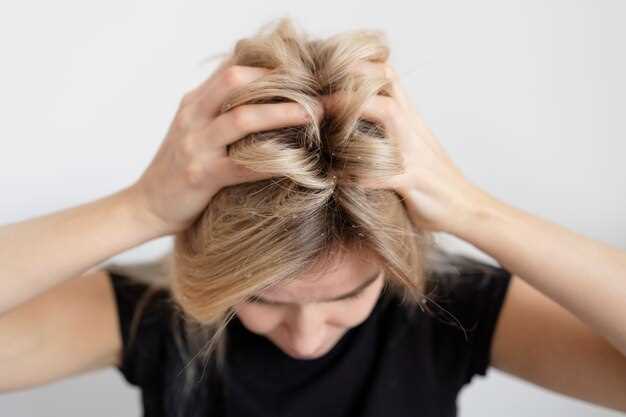
Discover the potential impact of Venlafaxine on hair loss
When addressing the diverse aspects of well-being, it is essential to consider potential side effects that can arise from certain medications. Venlafaxine, a commonly prescribed antidepressant, has been associated with an undesirable effect that has garnered attention: hair loss. This article examines the possible connection between Venlafaxine and the reduction in hair volume and density.
Unraveling the intricate relationship
In recent years, researchers have explored the complex interplay between Venlafaxine usage and hair loss. Although the exact mechanism is yet to be fully understood, studies suggest that Venlafaxine could potentially interfere with hair follicle health, leading to hair thinning and, in some cases, hair loss. The impact of this phenomenon on individuals can be significant, as hair is often considered an integral part of one’s identity and self-esteem.
Empowering individuals with knowledge and options
Understanding the potential impact of Venlafaxine on hair loss allows individuals to make informed decisions about their healthcare journey. It is crucial to consult with healthcare professionals to evaluate the necessity of Venlafaxine, explore potential alternatives, and adopt hair care practices that may mitigate any adverse effects. By prioritizing overall well-being and taking proactive steps, individuals can navigate the potential challenges associated with hair loss.
Remember, knowledge is power. Stay informed, seek advice, and make choices that empower your health and boost your confidence.
Understanding hair loss

Understanding the process of hair loss is crucial for those seeking effective solutions. In this section, we delve into the intricacies of hair loss, exploring its causes, common patterns, and potential remedies. By gaining a deeper understanding of the factors contributing to hair loss, individuals can make informed decisions to address this issue and regain confidence in their appearance.
The causes of hair loss
There are various factors that can contribute to hair loss, ranging from genetic predisposition to medical conditions and lifestyle choices. Some individuals may experience hair loss due to hormonal imbalances, while others may be more prone to it due to certain genetic traits. Environmental factors, such as excessive exposure to pollution or harsh chemicals, can also impact hair health and lead to hair loss over time. Understanding these underlying causes is crucial in determining the most suitable treatment options.
Patterns and stages of hair loss
Hair loss can occur in different ways and follow specific patterns. It is important to identify the stage and pattern of hair loss to determine the appropriate course of action. Whether it be receding hairline, thinning on the crown, or overall hair thinning, each pattern may require a tailored approach for effective treatment. By recognizing these patterns and stages, individuals can choose targeted solutions that address their specific needs and achieve optimal results.
Evaluating potential remedies
Several remedies are available for addressing hair loss, ranging from medical treatments to lifestyle changes. It is essential to carefully evaluate each option to determine its effectiveness and suitability. Medical treatments, such as topical solutions and oral medications, may help slow down hair loss and promote regrowth. Additionally, adopting a healthy lifestyle, including a balanced diet and stress management techniques, can contribute to maintaining healthy hair growth. Exploring these remedies with a healthcare professional can lead to personalized solutions that address the root causes of hair loss.
In conclusion, by understanding the causes of hair loss, recognizing patterns and stages, and evaluating potential remedies, individuals can take proactive steps towards managing and overcoming this common concern. By prioritizing hair health and seeking appropriate solutions, it is possible to restore confidence and achieve a fuller, healthier head of hair.
